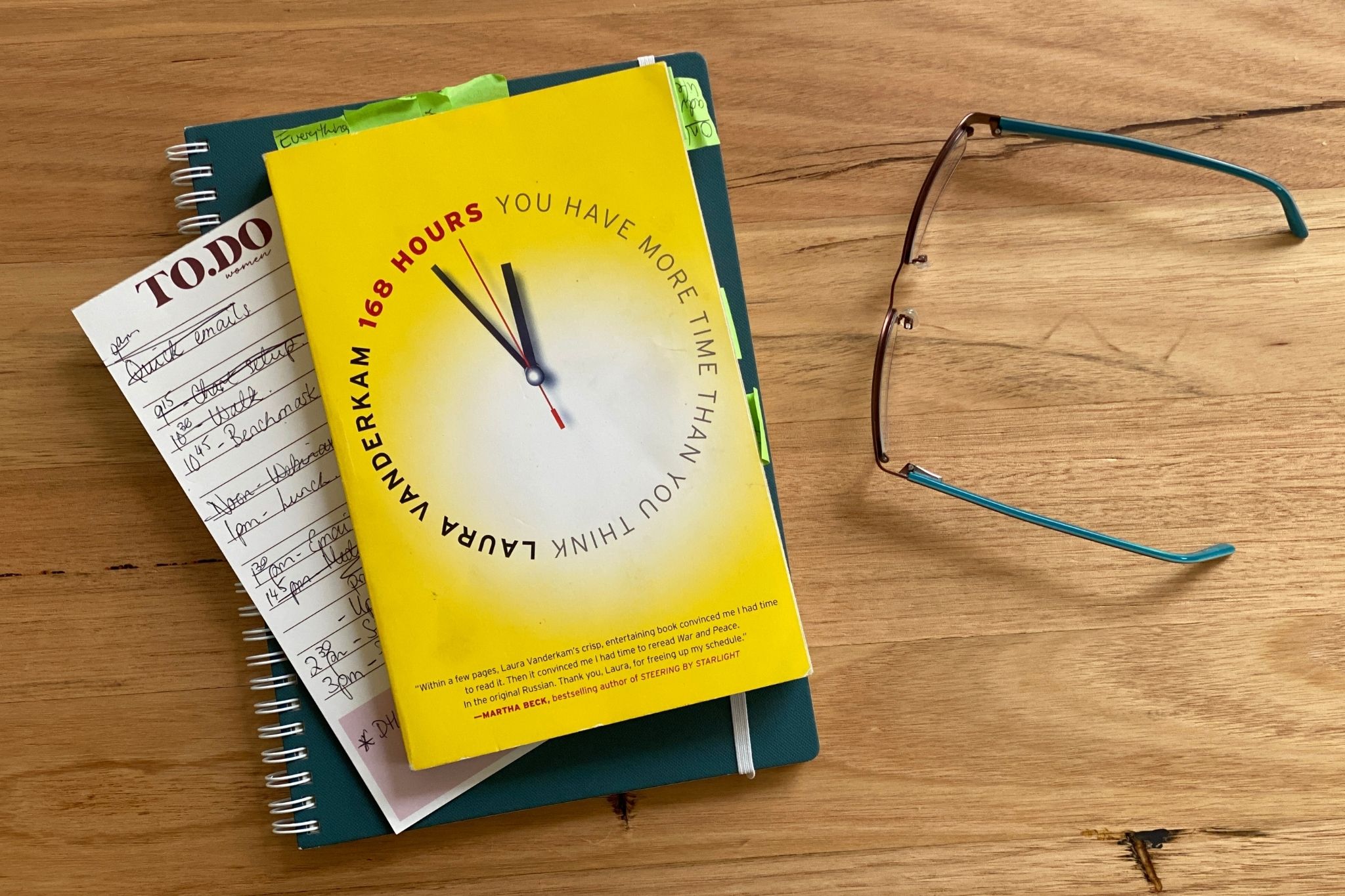Laura Vanderkam is the author who has most influenced my approach to owning my time, as well as the development of TimeBeings. Highly practical, logical and creative, her solutions question convention and empower readers the build a life true to their values. The book is filled with fascinating stories demonstrating how others have done just this.
Addressing both the work and life spheres, Vanderkam holds up a core competency lens to break down our time perceptions and open our eyes to the possibilities that could apply in our lives.
Let’s put it to action!
1. Discover your core competencies
Vanderkam takes the business concept of core competencies and applies it to the individual.
“An individual’s core competencies are best thought of as abilities that can be leveraged across multiple spheres. They should be important and meaningful. And they should be the things we do best and that others cannot do nearly as well.”
These may be your particular skills and interests, like investigation, writing, design or health. To hones these, Vanderkam recommends:
- Tracking your time across various work and life categories,
- Assessing the total time you spend on each category and
- Exploring the activities within each category.
(TimeBeings clients will notice how these features are incorporated in TimeBeings time diary framework).
Next, compile a List of 100 Dreams – achievements, life milestones, habits or experiences that you feel are worth striving for (and may include key achievements to date). Some may be grand life-long goals, and some may be relatively mundane, but nonetheless likely to add to your happiness. Reflect on what you’ve already done and what you haven’t yet. Highlight some low-hanging fruit and test a few things out. Take a class, visit somewhere new, ask someone, mix up your routine. Question what truly belongs on the list and reflect on the commonalities between them. Through the process, your core competencies should come to light.
MY ACTION
My core competencies include:
2. Identify their application across your whole life
Look for the tasks at work and beyond that align with your core competencies.
If you’re a developer, your logical questioning skills make you awesome at troubleshooting code. You’re not terrible at open-ended creative pursuits, but perhaps you can admit that others are better placed to drive those projects; it’s just not a core competency for you. So admit it and move on.
Vanderkam’s discussion on family time is refreshing:
“Nurturing your family and close friends is also a core competency (…) though there are probably activities within this larger competency that you do better than others. As a confirmed, lifelong free agent, I stink at teaching my son to follow directions and behave well in a group setting. His nursery school teachers, who do this professionally, excel at it. On the other hand, I tell pretty good stories.”
As always, honest self-reflection goes a long way to determining which activities you’re best placed to dedicate most time to.
3. Focus on core competencies and minimise the rest
Look for opportunities to spend more time on activities that align with your competencies.
But before you do that, you may need to cull those misalignments. Look over your time diary and see which activities could be automated, delegated, minimised or outright rejected. If it doesn’t align with your core competencies, than there may well be someone else better placed to do it (if it needs doing at all). I highly recommend reading her book for range of practical examples, research-backed insights and novel perspectives.
MY ACTION: This core-competency lens gave me the push I needed to refocus my volunteering time. Until recently, I had two regular volunteer roles at church – singing, and bookkeeping. Singing surprisingly developed into a competency over many years and I really enjoy it. However, I found it hard to make time to practice my parts. Bookkeeping is not well aligned with my core-competencies, but was a role I took on at less-demanding time in my life and continued out of obligation. Once I saw this perspective, it didn't take long for me to identify another person whose core competencies did align with the role, and they happily accepted it. A weight was lifted from my shoulders, and the church volunteering system was made a little more efficient.
Making the most of your 168 hours
Vanderkam manages our expectations: most people will find their work and personal lives are full of non-core competency activities (I still spend more time picking up toys than I’d consider necessary to nurture my kids!). Like every life-spanning improvement, check in with yourself regularly to find new ways to build a little more of that life you’re striving for.
168 Hours will give you plenty of ideas to get started.

